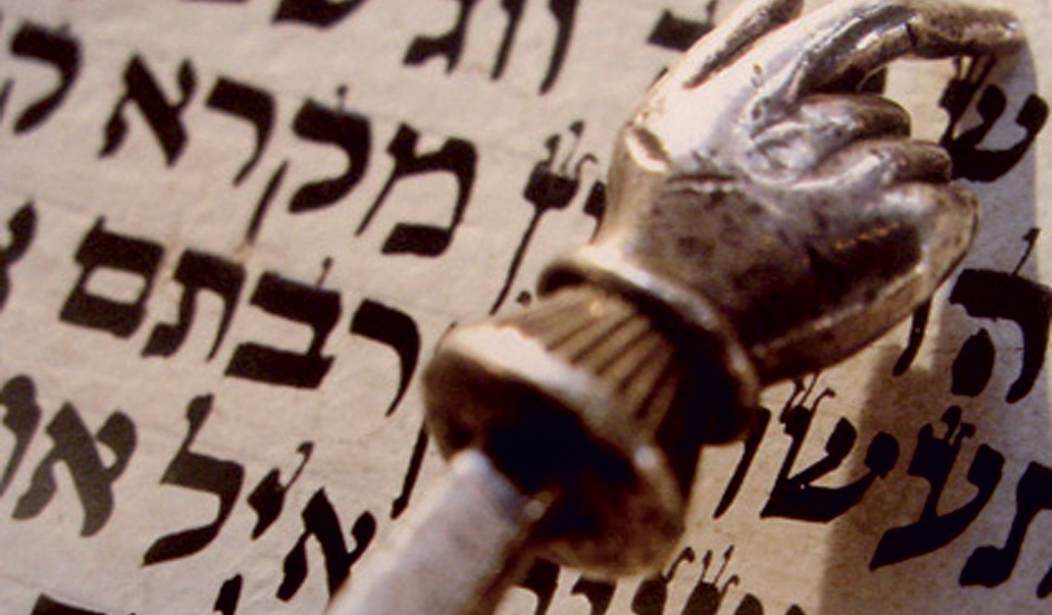Dëvar Torah – Parashath Tzav (Leviticus VI, 1-VIII, 36)
This week our parasha, in a sense, recapitulates last week’s parasha.
Last week we discussed the five categories of sacrifice — qorbanoth — brought in the Sanctuary, the Miqdash (that is, the Mishkan in the desert and later the Temple in Jerusalem): the ‘ola; the mincha; the chattath; the shëlamim; and the asham. This week, Moshe is told to exhort Aharon and his sons concerning these qorbanoth from the point of view of the kohén performing the sacrifice, rather than the owner, who predominated last week, preparatory to their installation as kohanim at the end of the parasha.
The parasha can thus be viewed as divided into six parts, the first five of which are headed as follows: Zoth torath ha‘ola (“This is the Torah of the ‘ola”), yVI,2-6; zoth torath hamincha, ibid., 7-16; zoth torath hachattath, ibid., 18-23; zoth torath ha’asham, VII,1-10; vëzoth torath hashëlamim asher yaqriv la-Shem, ibid., 11-34.
The discerning reader will note that the order of qorbanoth has been changed: in last week’s parasha, the categories of chattath and asham, which deal with the expiation of sin, followed the category of shëlamim, the “peace offerings.” Here, it precedes them. What is the reason?
The great 19th Century commentator Rabbi Naftali Tzëvi Yëhuda Berlin, known affectionately by his initials as Nëtziv, notes another peculiarity in his monumental Ha‘améq Davar. The shëlamim are introduced in verse 11 with the additional clause “asher yaqriv la-Shem,” “which one will bring close to Ha-Shem.” This seems superfluous. After all, it is inherent in the word qorban that all qorbanoth are “brought close to Ha-Shem.” In what way are shëlamim different?
In order to find an answer, the Nëtziv calls our attention to another passage:
Any man of the house of Israel who would slaughter an ox or sheep or goat … and did not bring it to the Tent of Assembly to bring a qorban to Ha-Shem before Ha-Shem’s Mishkan; it will be considered blood for that man, he will have shed blood, and that man will be cut off from his people (XVII, 3-4).
This passage, the Nëtziv suggests, has a dual significance. One applies to all generations, the other only to the generation of the desert.
The significance for all generations is — as Rashi tells, basing himself on Zëvachim 106ff. — that the slaughter of any animal which has been dedicated as a sacrifice (muqdash) outside the courtyard of the Miqdash is forbidden.
Then the Nëtziv explains the special significance this had for the generation of the desert. During Israel’s sojourn in the desert, shëchitath chullin, the slaughter of non-sacrificial meat, was proscribed (cf. Chullin 16b and Rambam, Hilchoth Shëchita IV, 17-18). The reason for the prohibition was the practice, common at the time among many nations, of slaughtering animals on the ground in areas devoid of human settlement in order to offer the blood to the demons thought to frequent such wildernesses.
The incident of the Golden Calf had already demonstrated that the ‘Erev Rav accompanying Israel out of Egypt were not reliable concerning idolatrous practices, and that the bënei Yisra’él were unfortunately not immune to such influences, either. Therefore, in order to avoid even the breath of suspicion that someone was engaging in this practice, it was decreed that anyone who simply wanted to eat meat bring the animal as a qorban shëlamim and have it slaughtered before the Mishkan in the full sight of everybody.
Later on, after the passing of that generation and the conquest of Eretz Yisra’él, when the location of the Mishkan was fixed at Shilo while the bënei Yisra’él scattered to their holdings across the entire land, shëchitath chullin was permitted. It was permitted both because the original danger had been mitigated by the passage of time, and because the requirement to eat only sacrificial meat has been rendered impracticable, in many cases, by distance.
With this as background, we can understand why the phrase asher yaqriv la-Shem was appended to our verse. With so many shëlamim being offered in the desert not with the holy intent of promoting peace and unity within Israel, but only to satisfy an appetite for meat, it was possible that true purpose of this qorban might be forgotten. That the word shëlamim could become simply a name, drained of all meaning.
By reminding the kohanim in this way that true shëlamim must also be brought with all the intentions and mindset proper to a qorban, any misunderstanding due to this temporary instruction for the desert generation could be avoided.
Rashi cites the midrash Torath Kohanim to explain that the word tzav, with which our parasha begins and for which it is named, is to be understood as meaning not “command Aharon and his sons”, as we might expect, but rather in the sense of “exhort” or “encourage.” He continues by citing Rabbi Shim‘on’s opinion (from the midrash) that this is particularly necessary in a case in which there is chesron kis, “out-of-pocket” expenses. For the kohanim, the category of ‘ola includes not only qorbënoth nëdava, “free-will offerings,” but also the tëmidim, the “constant” sacrifices offered twice daily, morning and evening, at mandatory public expense. Surely the temptation to “cut back” and “spare expenses” would come into play, so a little encouragement becomes necessary.
This all seems well and good, but the structure of our parasha indicates that the tzav applies to all the categories of qorbanoth; certainly such other commentators as the Rashbam and Sforno assume so. Rabbi Shim‘on’s actual comment reads: “Especially in a case where there is monetary loss.” Encouragement seems called for in all of these cases.
Aharon and his sons were being invested with an exalted and noble office, one which required that they assume a higher measure of aëdusha, “sanctity,” than the rest of Israel. They would henceforth be responsible for maintaining the link between the physical and the spiritual in our world, for Jews as individuals, for Israel as a nation, as well as for the nations of the world.
As such, the kohanim could be forgiven some dismay on contemplating the temporary instruction concerning meat. Were they then to be cast in the role of Israel’s butchers, running, as it were, a meat market?
Be assured, the Torah tells them, that there will be a time when all the shëlamim will be as holy as all of the other qorbanoth, and that time would come because of the appetitive shëlamim, which will have saved Israel from sinking into habitual idolatry when they were most vulnerable. For this reason, following the Talmudic principle of acharon acharon chaviv (“the last listed is the dearest”), the shëlamim are singled out for special notice by being moved to the end.









Join the conversation as a VIP Member